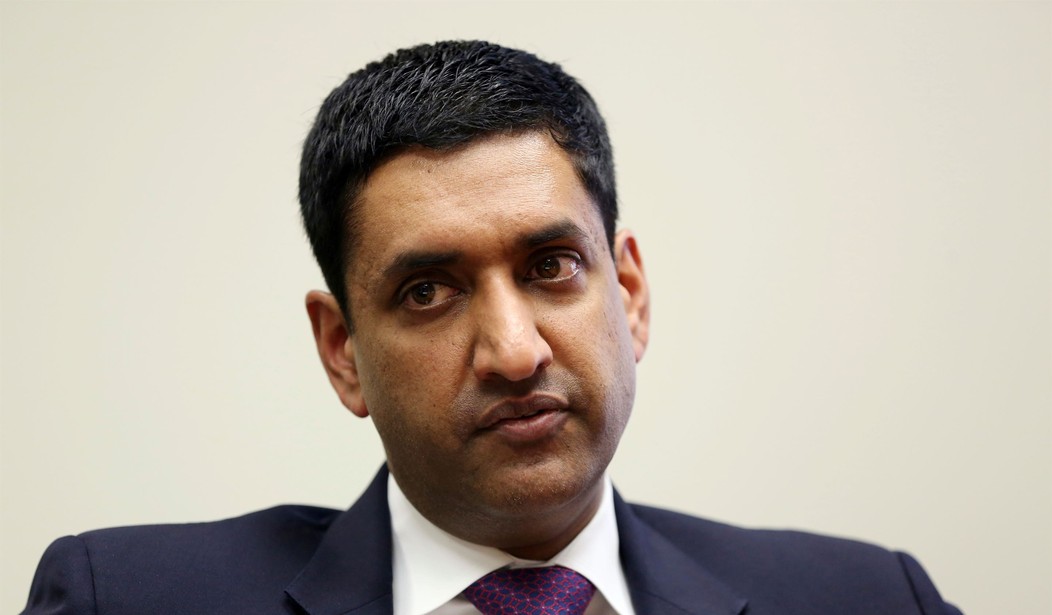Here’s one of those ideas that everyone wants to happen but probably won’t. Progressive Rep. Ro Khanna (D-CA) is introducing a measure that would address corruption in Congress, an issue that has been discussed for ages.
Khanna’s proposed resolution includes a “comprehensive roadmap to achieving broad political reform in the judicial and legislative branches of the U.S. Federal government,” according to the congressman’s website.
The “roadmap” laid out in Khanna’s Political Reform Resolution includes several provisions related to term limits, stock trading, campaign contributions, and the Supreme Court.
The need for Supreme Court reform as well could not be clearer. Recent investigations have uncovered countless instances of justices unethically filing deficient financial disclosures, receiving extravagant gifts, and misusing staff. and the absence of a binding code of ethics allows justices to remain completely unaccountable. Lifetime tenures with no regular appointments process results not only in a lack of accountability, but also in a Court increasingly polarized along partisan lines, with each nomination setting up a contentious fight that divides our country.
Specifically, the Political Reform Resolution calls for:
12-year term limits for Members of Congress;
A ban on Members of Congress from holding and trading individual stocks during the Member’s tenure;
A ban on Members of Congress and candidates for the House and Senate from accepting contributions from political action committees and lobbyists, and a lifetime ban on lobbying for Members of Congress;
A binding code of ethics for Supreme Court Justices; and
18-year term limits and regular appointments for future Supreme Court Justices, requiring a new Justice to be added and another to rotate off every two years.
The resolution itself argues that “our political system should not be for sale” and points out that trust in the federal government “has been declining for decades with nearly 70 percent of Americans indicating distrust in the Government each year since 2007.”
The representative also highlights that the “demand for major Government reform has increased to 59 percent of Americans in 2023.”
Khanna has not been alone in demand for reform and accountability among members of Congress. Rep. Matt Gaetz (R-FL) has called for similar measures. In October, Gaetz wrote a post on X, formerly known as Twitter, in which he called on his Republican colleagues to come to an agreement on the matter.
Ok. Let’s negotiate.
— Matt Gaetz (@mattgaetz) October 5, 2023
My GOP colleagues want to raise the threshold on the motion to vacate.
This is a question for all of them.
If we enact the reforms @RepRoKhanna lays out here….
How high would you like the MTV threshold to be?
Because I’ll basically give you whatever… https://t.co/uaFhoNi0Is
Other representatives have also pushed for similar reforms. But as commendable as these proposals are, those pushing them are up against the stone wall of political reality. The prospects of such sweeping reforms actually being passed by our current Congress are slim, to put it mildly.
The same lawmakers who have been marinated in the system that Khanna, Gaetz, and others seek to overhaul are unlikely to vote to relieve themselves of the power that comes with corruption. It’s a classic catch-22. The very people who would need to pass these reforms are those who stand to lose the most from their implementation.
This reality presents an obstacle that might be too difficult to overcome – at least when it comes to the usual channels. The only chance would be for American voters to wake up and start paying closer attention to what their representatives are doing in Washington, D.C., and then turning out in full force to replace each one who refuses to sign on to Khanna’s proposal. The likelihood of that happening is about as favorable as Marianne Williamson winning the Democratic presidential nomination.
If this happens at all, it would likely take several more decades for enough Americans to finally see the light in enough numbers to make a difference at the ballot box. As Khanna said in his resolution, public opinion is very much in favor of these reforms. But their resolve has not yet grown enough to motivate action on their part.














